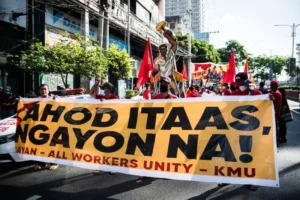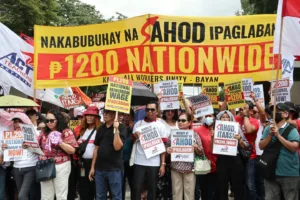On July 10, criminal charges were filed against Commission on Election chair George Garcia and other commissioners in connection with widespread electronic fraud in the May 2025 elections. Bishops, retired generals, and civil society leaders filed the case, including Bishop Colin Bagaforo, Gerry Alminaza, Efraim Tendero, Roberto Gaa, retired generals Generoso Senga, Wilfredo Franco, and Baguio City mayor Benjamin Magalong.
According to the filed case, Comelec illegally changed the software version used in the Automated Counting Machines (ACMs), from the audited version 3.4.0 to the unaudited version 3.5.0. The software change was revealed a day before the voting.
The complainants also accused Comelec of illegally using an unauthorized intermediary server called Data Center 3, which collected and processed votes before sending them to the five Transparency Servers of PPCRV, Namfrel, media, and major political parties. They said that the Comelec cleaned or deleted around 55 million votes on this server before sending the results to transparency watchdogs or election monitors. This violated the Cybercrime Prevention Act of 2012 (RA 10175).
They charged Garcia and the commissioners with 110,000 counts of system interference, or altering, blocking, or manipulating the operation of a computer system or network without permission or authority. This number matches the ACMs used. They also filed more than 55 million additional counts of system interference for the 55,874,700 votes that Comelec routed through Data Center 3. They filed the cases with the NBI Anti-Fraud Division because it has primary jurisdiction over these cases.
Meanwhile, the European Union Election Observation Mission (EU EOM) submitted its final report to Comelec in early July, which contained serious criticisms regarding the recent election’s integrity. The EU EOM, as well as election observers from the International Coalition for Human Rights in the Philippines, highlighted widespread anomalies such as violence, vote-buying, and issues of voter secrecy that undermined the integrity of the automated system.













